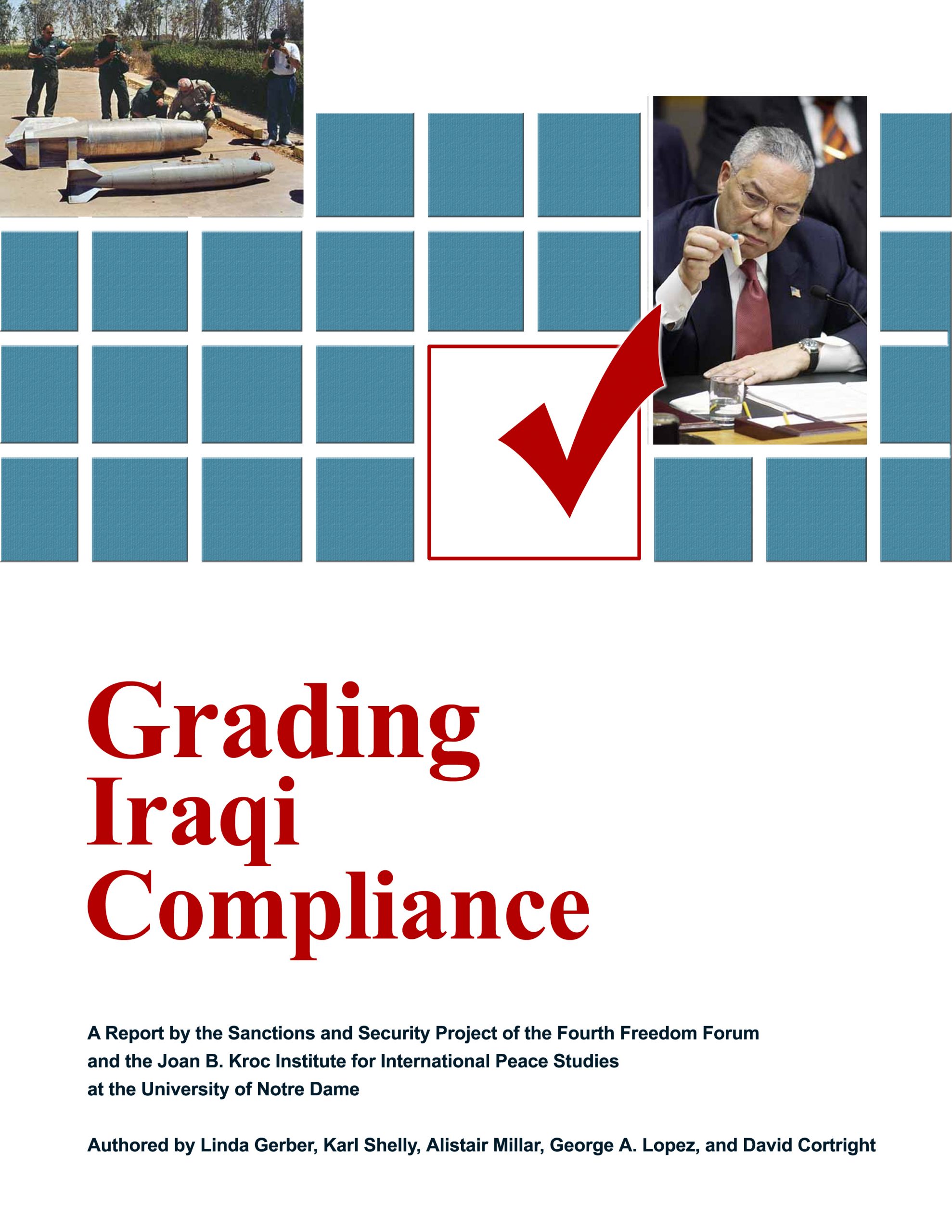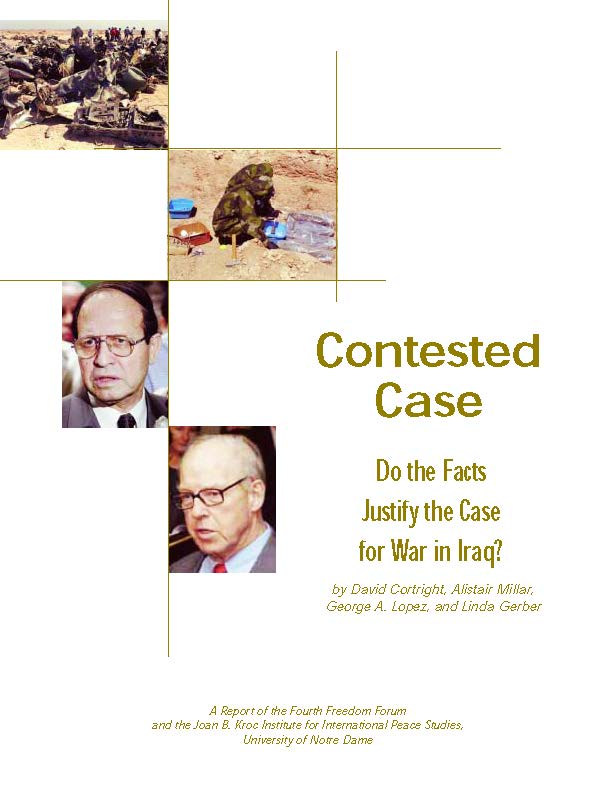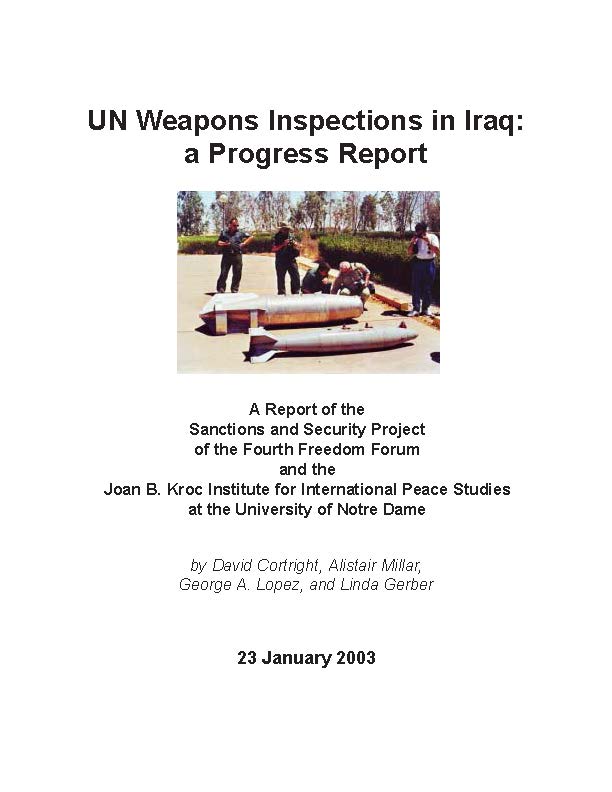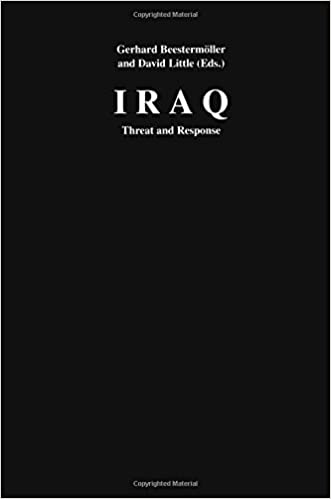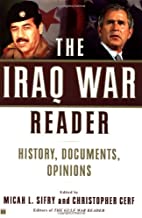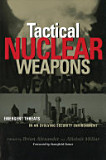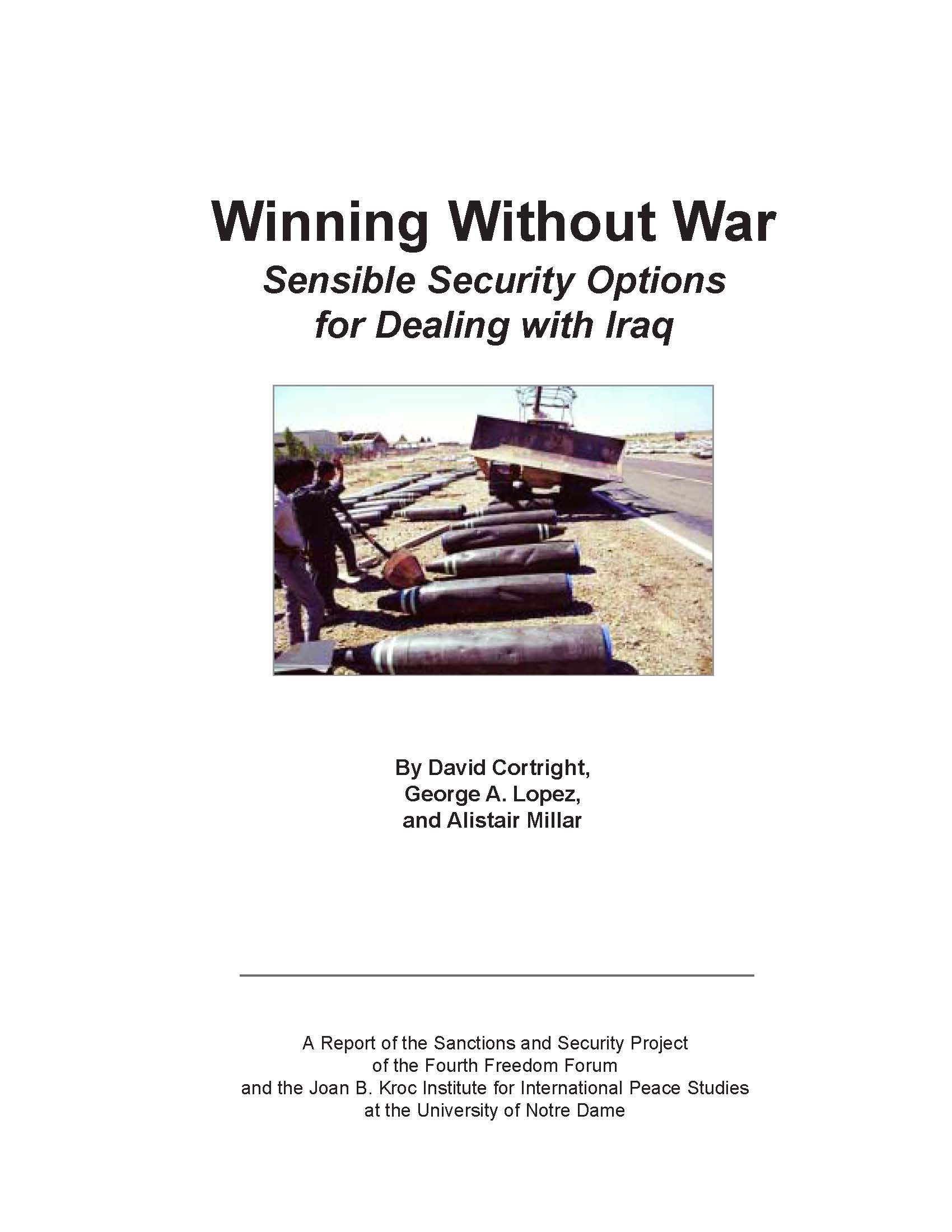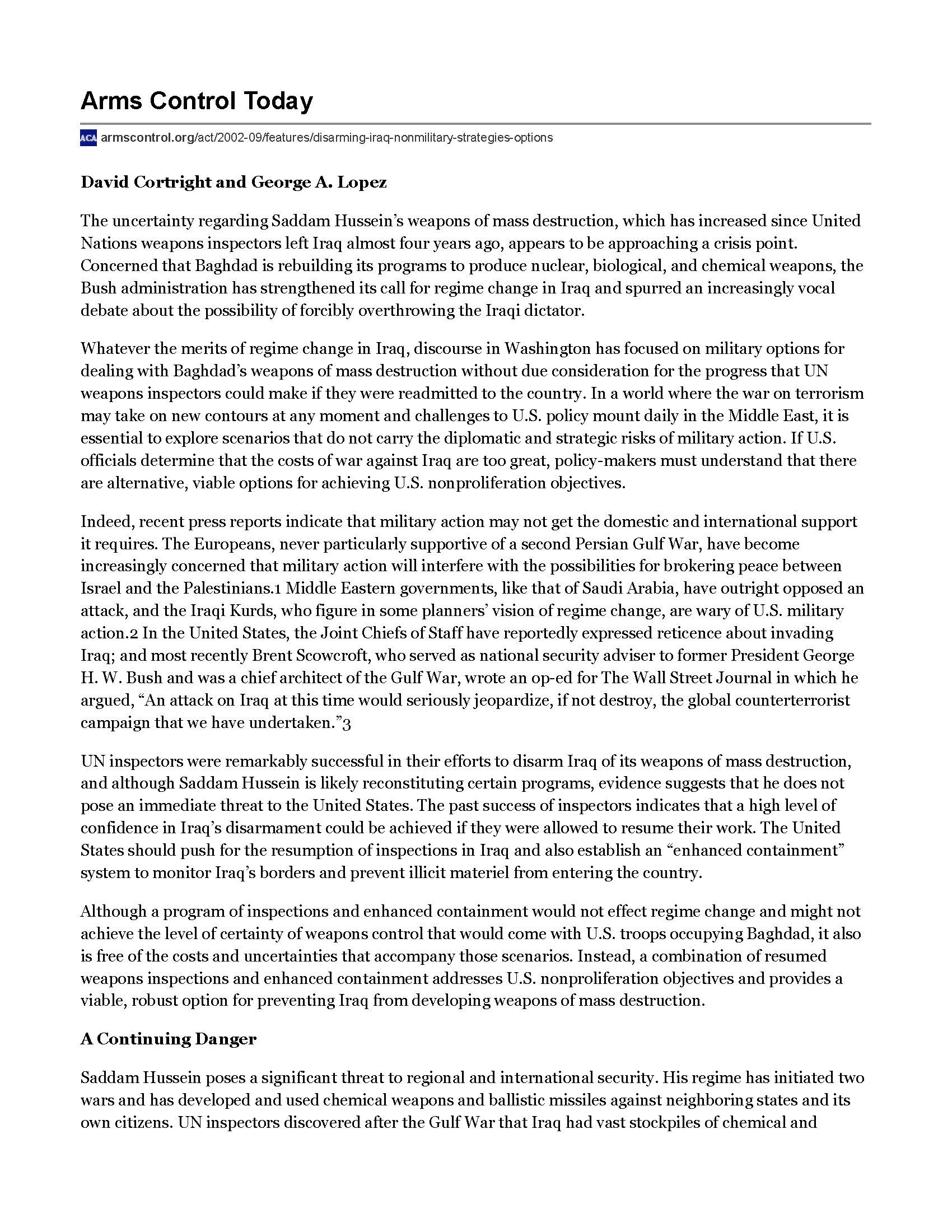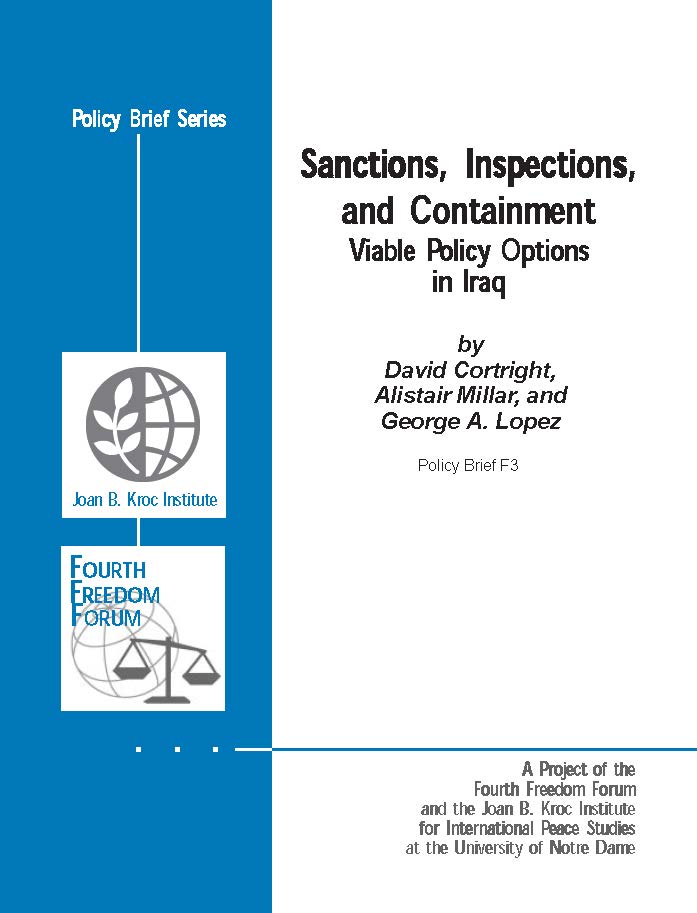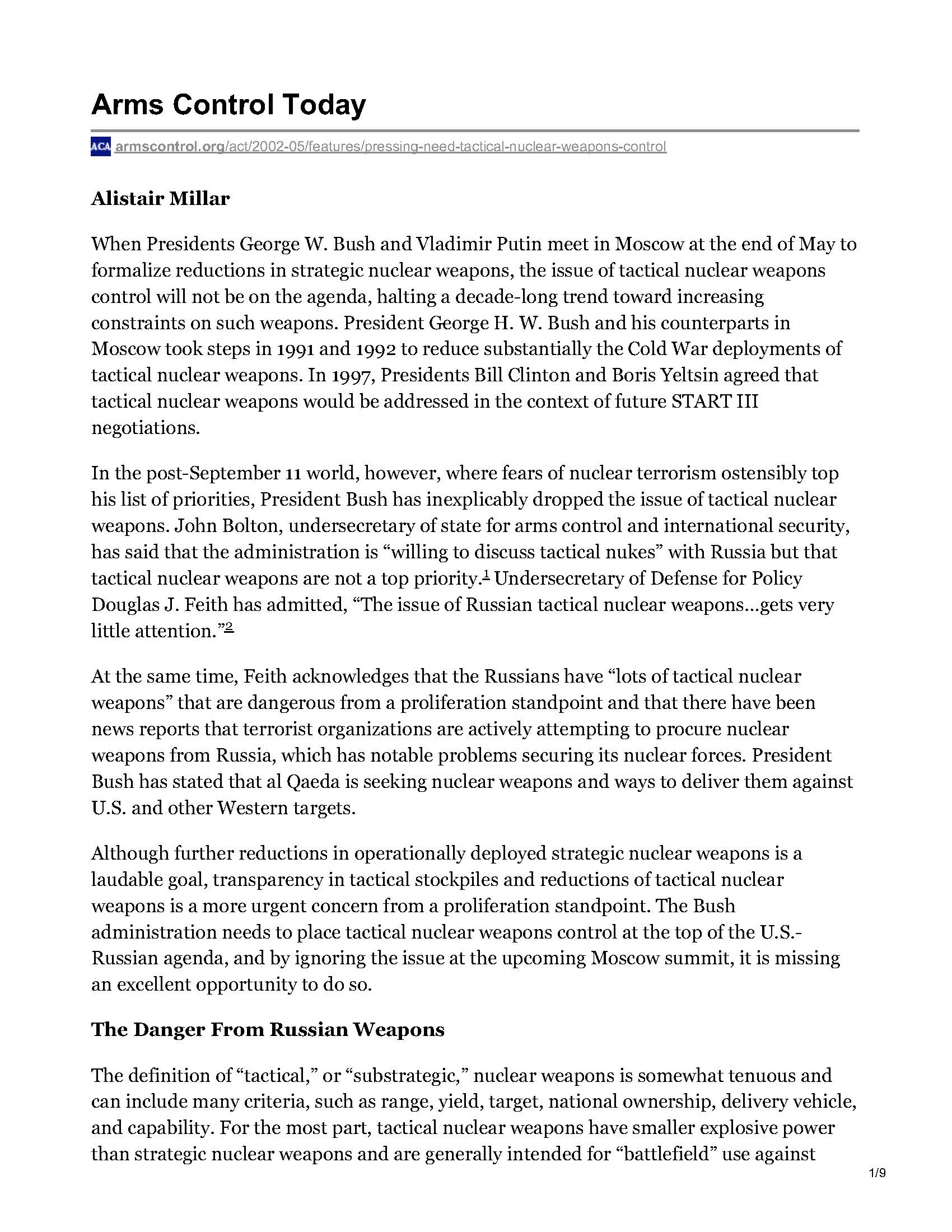Grading Iraqi Compliance
Report — 6 March 2003
This report devotes special attention to the compliance mandates of Security Council Resolution 1441, passed in November 2002. The authors argue that significant steps toward Iraqi compliance with Security Council demands have occurred, especially with the work of UNMOVIC inspectors since 2002. A chart published in this report showing Iraqi compliance with inspections was reprinted in the New York Times just before the outbreak of the war.
